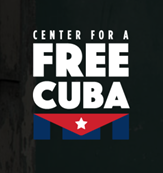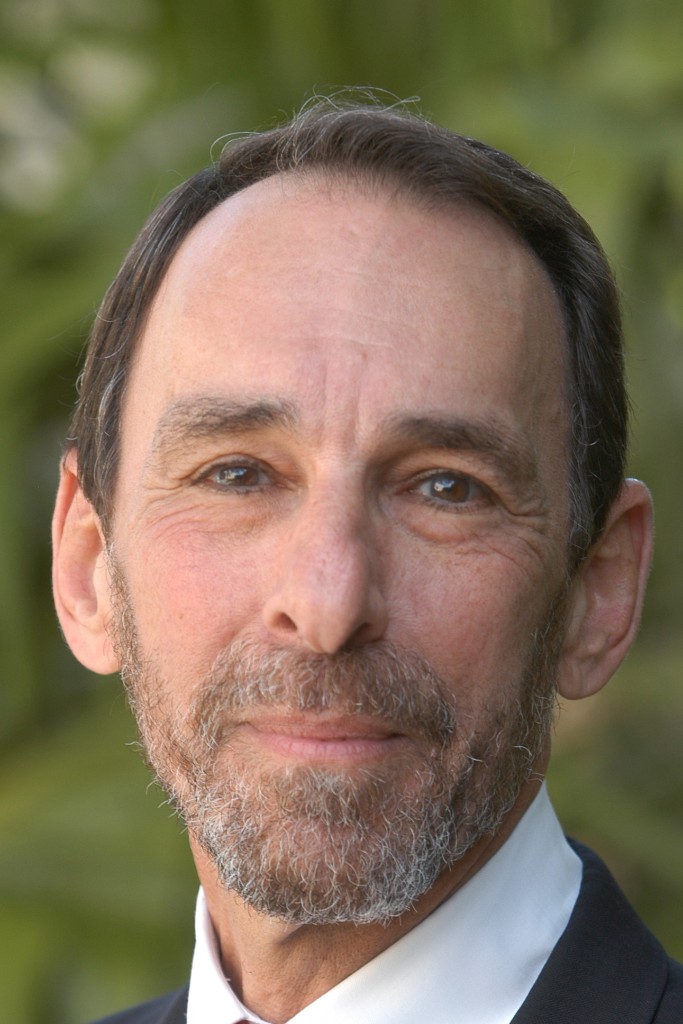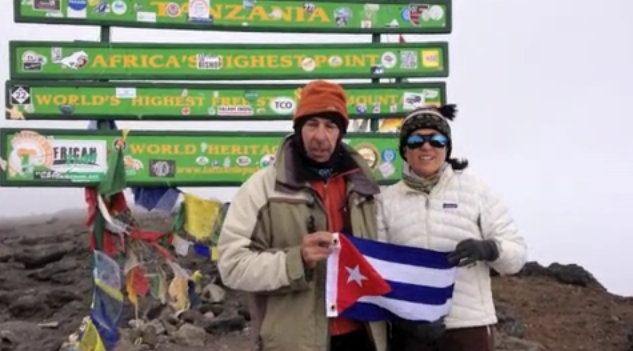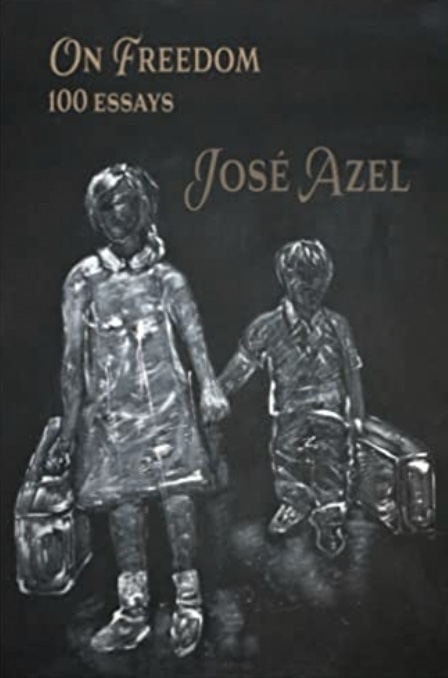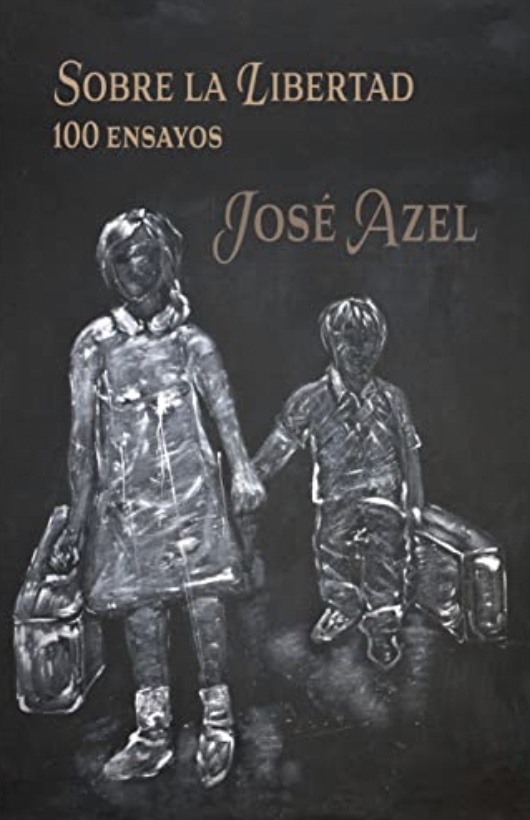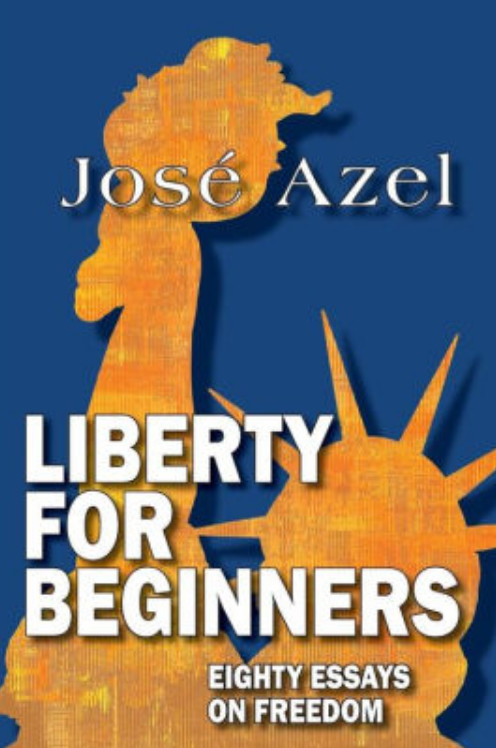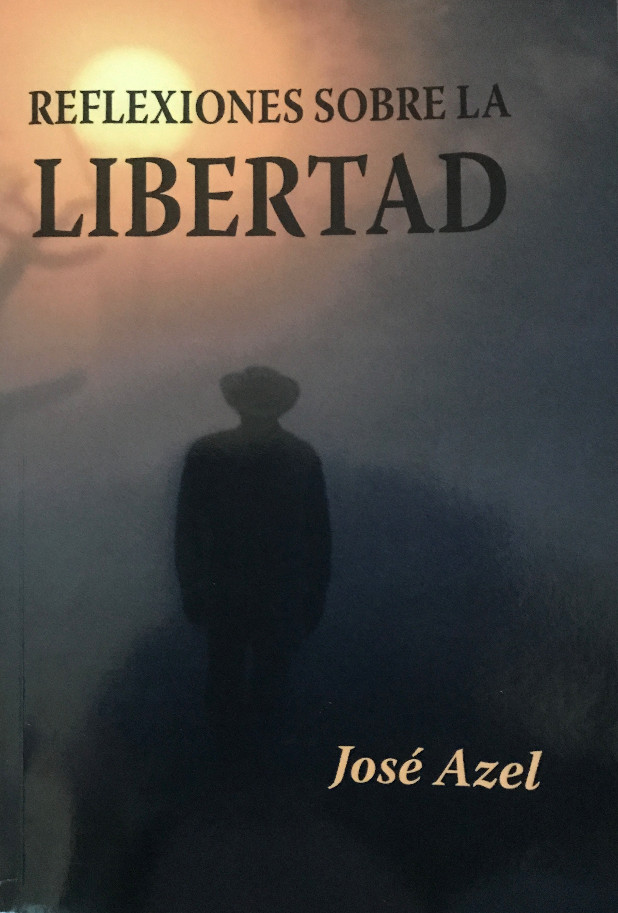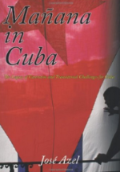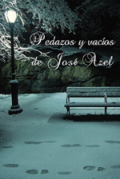Denouncing democrats new role in supporting the spread of communism, islam and intent in destroying the american way of life.
LET'S FIGHT BACK

GOD BLESS AMERICA
Tuesday, October 31, 2023
Monday, October 30, 2023
Free Cuba Now!
To promote a nonviolent transition to a Cuba that respects human rights, political and economic freedoms, and the rule of law. 64 years of prisoners of conscience in communist Cuba: Where is the outrage?“Never allow the government – or anyone else – to tell you what you can or cannot believe or what you can and cannot say or what your conscience tells you to have to do or not do.” - Armando Valladares,former Cuban prisoner of conscience and Ambassador to the UNHRC.. Spent 22 years in Castro’s prisons. 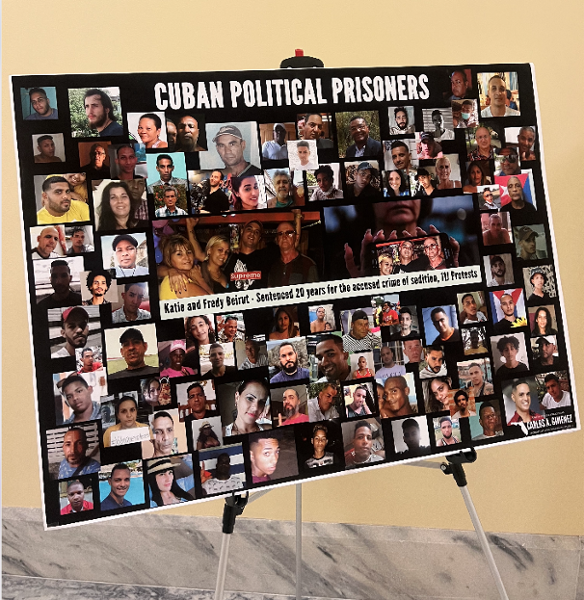 Selection of the over 1,000 political prisoners jailed today in Cuba. [ Office of Carlos A. Gimenez ] October 30th is the International Day of Political Prisoners. 49 years ago on October 30, 1974 initiated the idea of marking a day of political prisoners in the Soviet Union with a 24-hour fast. Freedom House in recognition of this day highlighted the cases of several current political prisoners, including two Cubans, Luis Manuel Otero Alcántara and Maykel 'Osorbo' Castillo. There are currently over a thousand prisoners of conscience in Cuba. Most were jailed for taking part in nationwide protests in July 2021 demanding freedom, human rights, and an end to dictatorship. Cuban prisoners of conscience have been a reality in Cuba since 1959. Some of them had participated in the struggle against Batista, and made Fidel Castro's rise to power possible. Huber Matos, a school teacher, declared himself in opposition to Fulgencio Batista on March 10, 1952 the day that Cuban democracy came under attack. Following the extrajudicial killing of some of his former students he joined the armed struggle and ended up being one of the leaders of the revolutionary insurrection that drove Batista from power on New Year’s Eve 1958.  Huber Matos fought against Batista. Spent 22 years jailed for nonviolent dissent with communist rule. Less than a year later he would be on trial for his life. What was his crime? Warning Fidel Castro in several private letters, where he tendered his resignation only to have it refused, that communists were infiltrating the revolutionary government. In these letters he plainly stated:
Fidel Castro made the letters public generating the crisis and denouncing the charge that communists were infiltrating the government. He ordered Camilo Cienfuegos, another popular revolutionary leader, to arrest Matos. The Castro brothers began to prepare a show trial and the execution by firing squad of Huber Matos for treason.
Revolutionary officers that had been convened at the trial to chant "to the execution wall" instead, moved by his testimony, rose up and applauded Matos. Instead of the firing squad the revolutionary tribunal sentenced him to 22 years in prison in December 1959. Huber Matos would serve every day of those 22 years suffering beatings and other tortures. 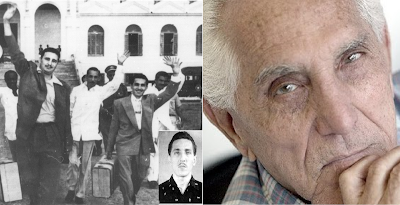 Labor union organizer Mario Chanes de Armas jailed with Castro by Batista in 1953. For his nonviolent dissent Castro jailed him for 30 years Mario Chanes de Armas, a regional leader of the Cuban Brewery Workersjoined Castro's efforts to overthrow Fulgencio Batista. Both were jailed by Batista for their anti-regime activities. Mario Chanes took part in the July 26, 1953 assault on the Moncada Barracks and was wounded. He was put on trial with the Castro brothers, and sentenced to 10 years in prison, but was pardoned with them after 22 months. Mario Chanes trained in Mexico and returned to Cuba on the Granma yacht with the Castro brothers, and Ernesto “Che” Guevara to defeat Batista. Over the past sixty four years the international community has become accustomed to the systemic injustices perpetrated by the Castro dictatorship. Between 1959 and 1988 no international organizations were allowed to visit prisons in Cuba. This included the International Committee of the Red Cross. This was at a time that prisons were filled with prisoners of conscience and political prisoners in Cuba. 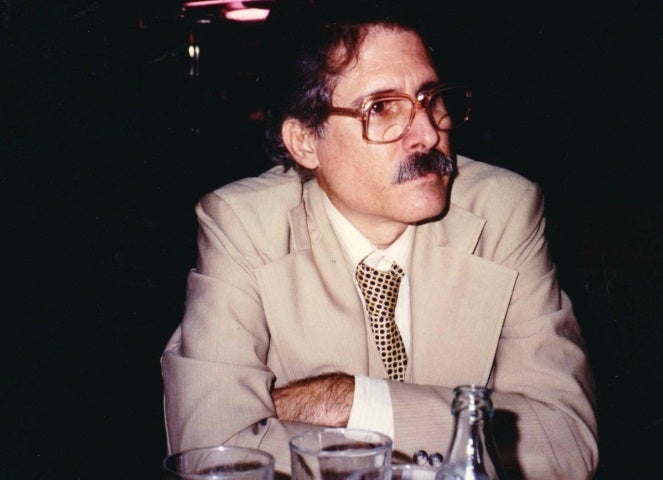 Ricardo Bofill: human rights defender and prisoner of conscience Independent human rights organizations in Cuba are not legally recognized by the Castro regime. The Cuban Committee for Human Rights was formally established on January 28, 1976 but did not become fully active until 1983 because State Security arrested everyone shortly after it was founded.
In 1987 the documentary "Nobody Listened" captured the human rights reality in Cuba with interviews with former political prisoners, archival footage of firing squads and other instances of repression. Former prisoners described show trials, extajudicial executions, and cruel and unusual punishment that rose to the level of torture. This in an environment were the international community was not listening. However things were about to change on the international front. The Cuban Committee for Human Rights was able to document human rights abuses and smuggle these reports out of the prisons and out of Cuba reaching the international community. It was their work combined with the diplomatic pressure of the Reagan Administration, and their Ambassador to the United Nations Human Rights Commission, former prisoner of conscience, Dr. Armando Valladares that on March 8, 1988 the Cuban government was finally called to account for systematically denying access to Cuba's prisons. 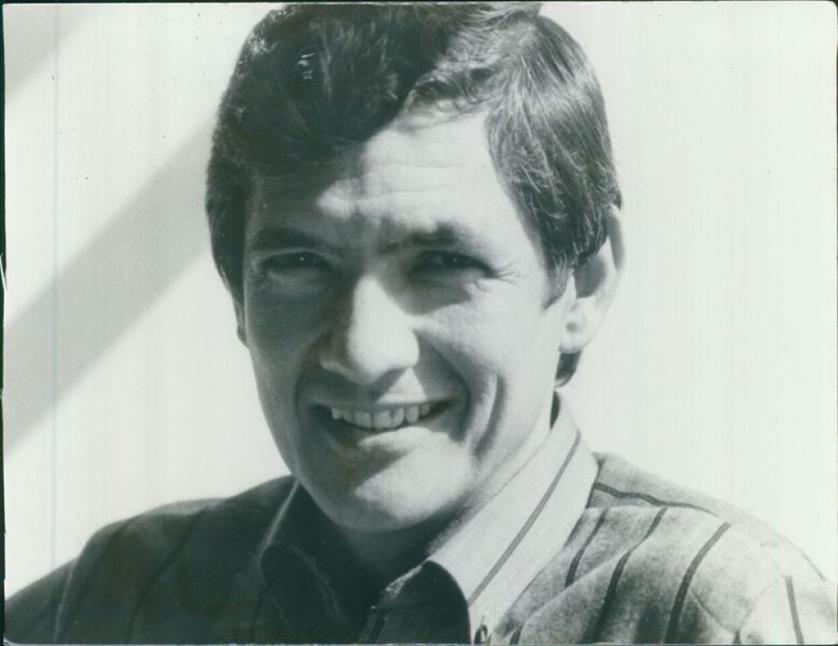 U.S. Ambassador to the UNHRC Armando Valladares On March 11, 1988 Havana invited the United Nations Human Rights Commission to investigate human rights in Cuba. Over the course of the next year not only the UN Human Rights Commission, but also the International Committee of the Red Cross, Amnesty International and Human Rights Watch were able to enter Cuba and document the human rights violations in the island. This was the first and last time these organizations were allowed into Cuba to visit Castro's prisons. The lack of outrage turned into a permanent acceptance of injustice in Cuba. Thirty four years have passed since the last time the International Committee of the Red Cross was able to visit Cuban prisons. Meanwhile the International Committee of the Red Cross has visited the U.S. Guantanamo detention facility over 100 times since 2001. During the Cuban Black Spring in 2003 over a 100 activists were arrested and 75 of them were subjected to political show trials and condemned to prison terms ranging from 15 to 25 years in prison. A Czech film crew in Cuba filmed and interviewed activists before the crackdown and then interviewed their friends and family members after the show trials. Out of this crackdown the wives, daughters, and sisters of these activists formed the Ladies in White and began organizing for their freedom. Regular marches, literary teas, and lobbying both the Cuban government and the international community. Some have been jailed, others beaten, and one of the founding leaders, Laura Inés Pollán Toledo, died under suspicious circumstances on October 14, 2011. There are still extrajudicial executions in Cuba by Castro's secret police. Oswaldo Payá Sardiñas, and Harold Cepero were murdered in a state security engineered killingson July 22, 2012, according to the Inter-American Commission on Human Rights in their June 9, 2023 report on the merits. Prisoners of conscience have died in Castro's prisons while protesting mistreatment at the hands of Cuban officials. This has gone on for decades. Some of the high profile cases stretch out over more than a half century: student leader Pedro Luis Boitel (1972), human rights defender Orlando Zapata Tamayo (2010), UNPACU member Wilman Villar Mendoza (2012) and political prisoner Yosvany Arostegui Armenteros are but a few that have been well documented. 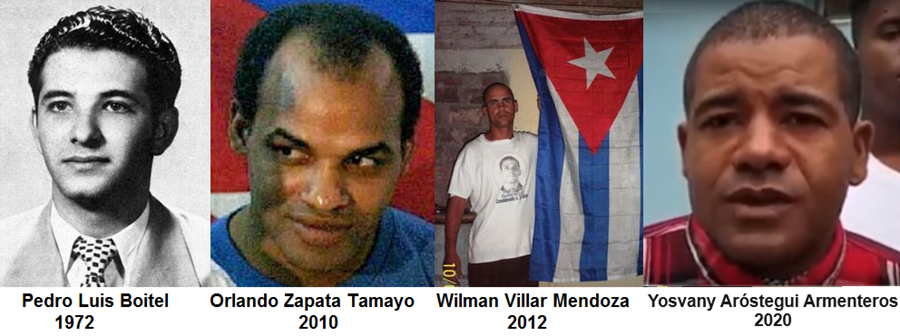 Reverend Martin Luther King Jr. issued a prophetic warning in his "Letter from Birmingham Jail" when he observed, “Injustice anywhere is a threat to justice everywhere. We are caught in an inescapable network of mutuality, tied in a single garment of destiny. Whatever affects one directly, affects all indirectly.” The international community has paid a price for its acceptance of these continuing injustices. Venezuela is now suffering a human rights crisis, a product of a Cuban occupation and the imposition of these systemic injustices on a new and larger population. The newest urgent action for a Cuban prisoner of conscience is for Maykel 'Osorbo' Castillo. Below is the Amnesty International urgent action and below it a photograph and description from 1988 in Life magazine describing conditions in the prisons. Six decades and ongoing of prisoners of conscience in Cuba, many of them human rights defenders jailed for their work, is an outrage that must be denounced more vigorously by the international community.
|
Israel’s Just War
|
